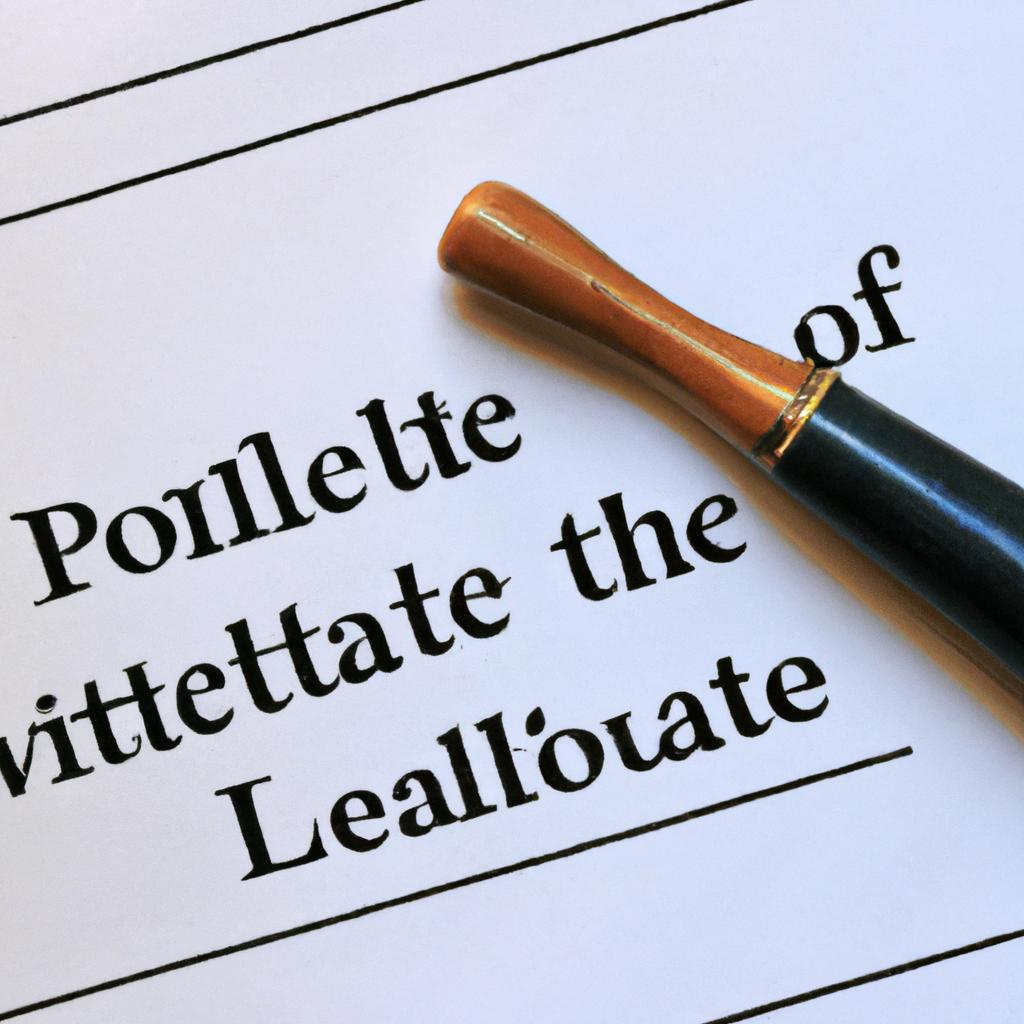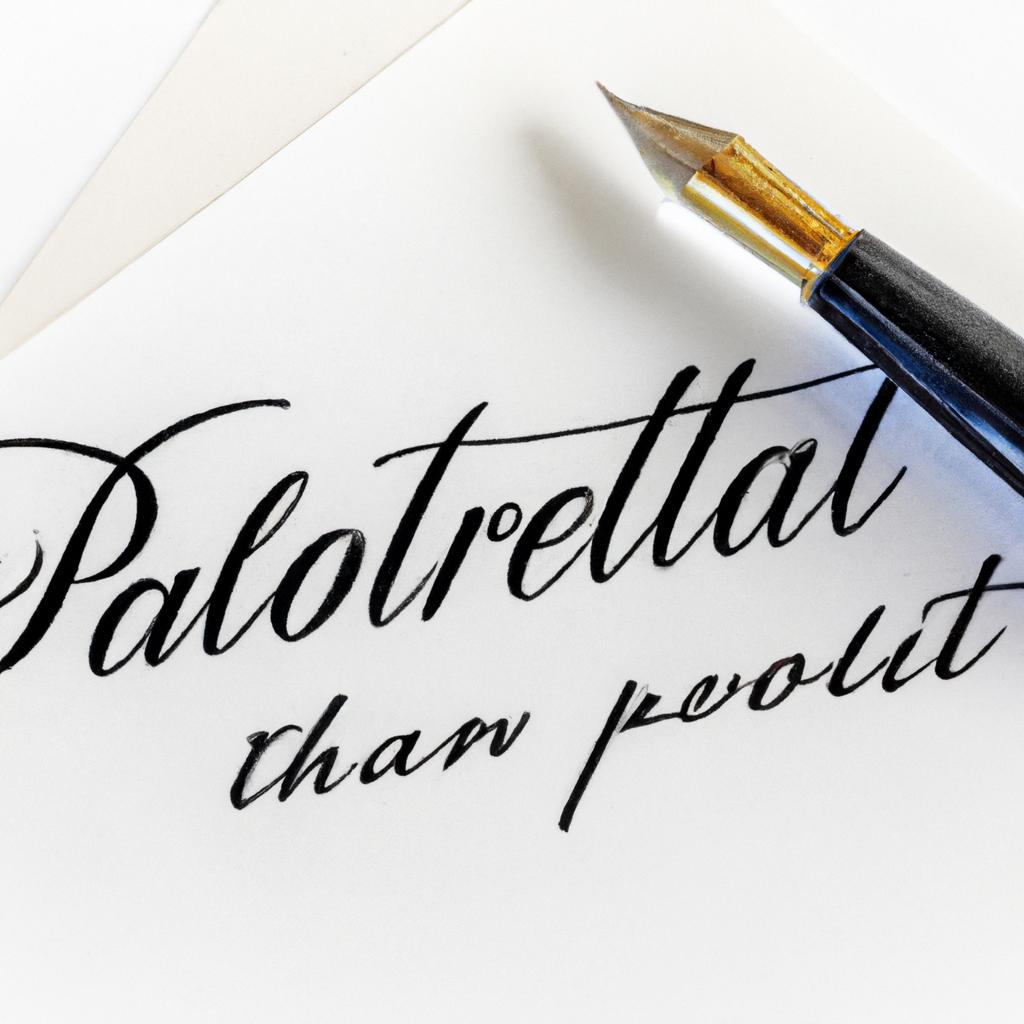In the intricate world of estate planning and posthumous administration, one question that commonly arises is whether a will necessitates probate. As experienced practitioners in the realm of estate law, we at Morgan Legal Group in New York City are well-versed in addressing such queries with clarity and precision. This article aims to explore the intricacies of probate and the circumstances in which it may or may not be required in relation to a last will and testament. Join us as we delve into the nuances of this crucial legal process with expertise and insight.
– Understanding the Probate Process: Navigating the Legal Requirements for a Will
When it comes to the question of whether a will requires probate, the answer is not always straightforward. Probate is the legal process of validating a will and distributing the assets of a deceased individual according to their wishes. While not all wills require probate, in most cases, it is necessary to ensure that the deceased’s assets are properly distributed and their final wishes are carried out.
During the probate process, several legal requirements must be navigated to ensure that everything is done in accordance with the law. This can include filing the will with the court, notifying beneficiaries and creditors, inventorying assets, paying debts and taxes, and distributing assets to heirs. It is crucial to seek the guidance of an experienced attorney who specializes in estate planning and probate to help you navigate the complexities of the probate process and ensure that everything is handled properly and efficiently.

– The Role of Probate in Validating a Will and Distributing Assets
Probate is a legal process that plays a crucial role in validating a will and distributing assets to beneficiaries. While the need for probate can vary depending on the jurisdiction and the complexity of the estate, in general, most wills do require probate to ensure that the deceased individual’s wishes are carried out properly. During the probate process, the court will verify the validity of the will, appoint an executor to oversee the estate, and oversee the distribution of assets according to the terms of the will.
One of the main reasons why a will typically requires probate is to provide a formal legal stamp of approval, ensuring that the will is indeed the legally valid document of the deceased individual. This process helps to prevent disputes among beneficiaries and ensures that the deceased’s assets are distributed in accordance with their wishes. Additionally, probate can also help to protect the estate from potential creditor claims, as creditors typically have a limited window to make claims against the estate during the probate process. While probate can sometimes be a lengthy and complex process, working with an experienced probate attorney can help to streamline the process and ensure that the estate is handled efficiently and in compliance with the law.
– Factors Influencing the Need for Probate: Importance of Consulting with an Estate Planning Attorney
Probate is the legal process through which a deceased person’s assets are distributed to beneficiaries and creditors. Whether a will requires probate depends on several factors that should be carefully considered:
- Complexity of the estate
- Existence of a valid will
- State laws regarding probate
Consulting with an estate planning attorney is crucial to determine the need for probate and to navigate the process efficiently. An attorney can provide valuable guidance on estate planning strategies that can help minimize the need for probate, such as establishing living trusts or joint ownership of assets. By seeking legal advice, individuals can ensure that their wishes are carried out effectively and that their loved ones are provided for in the event of their passing.

– Exploring Alternatives to Probate: Trusts and Other Estate Planning Strategies
In estate planning, many individuals wonder whether creating a will requires going through the probate process. While a will must typically go through probate upon the death of the testator, there are alternative estate planning strategies that can help avoid probate altogether. One common alternative to probate is creating a trust. By establishing a trust, assets can be transferred to beneficiaries without the need for probate court involvement. Trusts offer privacy, flexibility, and the ability to distribute assets according to the wishes of the grantor.
Another estate planning strategy to explore is the use of payable-on-death (POD) or transfer-on-death (TOD) designations for assets such as bank accounts, brokerage accounts, and real estate. By designating beneficiaries on these accounts, ownership of assets can pass directly to the named beneficiaries upon the death of the account holder, bypassing the probate process. Other strategies, such as joint tenancy with right of survivorship and life insurance policies can also help avoid probate. Consulting with an experienced estate planning attorney can help individuals explore the best alternatives to probate for their specific situation.
Q&A
Q: What is probate and why is it necessary for a will?
A: Probate is the legal process in which a deceased person’s will is validated and their assets are distributed according to their wishes. While not all wills require probate, it is often necessary to ensure that the deceased’s debts are settled and their assets transferred to the rightful heirs.
Q: Does every will have to go through probate?
A: No, not every will needs to go through probate. In some cases, a will may contain provisions that allow for the transfer of assets without the need for court intervention. Additionally, if the deceased person’s assets are held in a trust or have designated beneficiaries, probate may not be necessary.
Q: How long does the probate process typically take?
A: The length of the probate process can vary depending on the complexity of the estate and any challenges that may arise. On average, probate can take anywhere from a few months to a few years to complete.
Q: Are there any benefits to avoiding probate?
A: There can be benefits to avoiding probate, including reducing costs and maintaining privacy. By utilizing trusts, beneficiary designations, and other estate planning tools, individuals may be able to pass on their assets without the need for probate.
Q: What happens if a will is not probated?
A: If a will is not probated, the deceased person’s assets may not be distributed according to their wishes. Without court supervision, there is no guarantee that creditors will be paid or that assets will be distributed properly. Additionally, probate may be necessary to resolve any disputes that may arise among potential heirs.
Wrapping Up
In conclusion, the process of probate can be complex and time-consuming, but it is a necessary step to ensure that a deceased individual’s assets are properly distributed according to their wishes. While not all wills require probate, consulting with an estate planning attorney can help you navigate the legal requirements and determine the best course of action for your particular situation. Remember, planning ahead and having a clear and concise will can help streamline the probate process and provide peace of mind for you and your loved ones.
 “Does a Will Require Probate?” A Comprehensive Guide on What to Expect
“Does a Will Require Probate?” A Comprehensive Guide on What to Expect
When it comes to estate planning, creating a will is often the first step for many people. A will, also known as a last will and testament, is a legal document that outlines how a person’s assets will be distributed after their death. While a will is an essential document, many people are unsure about the probate process that may follow. In this comprehensive guide, we will dive into the question, “Does a will require probate?” and provide valuable information on what to expect.
Understanding Probate
Before we answer whether a will requires probate, let’s first understand what probate is. Probate is the legal process of distributing a person’s assets after they pass away. It involves proving the validity of the will, paying off any outstanding debts, and distributing the remaining assets to the designated beneficiaries.
Probate process varies from state to state, but generally, it involves the following steps:
1. Filing the Will with the Court: The first step in the probate process is to file the will with the probate court in the county where the deceased person resided. If the will is deemed valid, the court will appoint an executor or personal representative to handle the probate process.
2. Notifying Beneficiaries and Creditors: The personal representative is responsible for notifying all beneficiaries named in the will, as well as any known creditors, of the deceased person’s passing.
3. Collecting and Managing Assets: The personal representative is in charge of collecting and managing the deceased person’s assets until they are distributed to the beneficiaries. This may involve selling assets to cover debts or taxes.
4. Paying Off Debts: Any outstanding debts of the deceased person, such as credit card bills or mortgages, must be paid off before any assets can be distributed.
5. Distributing Assets: Once all debts have been paid, the remaining assets can be distributed to the designated beneficiaries. This is done according to the instructions outlined in the will.
As you can see, probate is a time-consuming and often expensive process. This leads us to the question, “Does a will require probate?”
Does a Will Require Probate?
Typically, yes, a will does require probate. However, it’s essential to understand that not all assets go through probate. Some assets are considered non-probate assets and are not subject to the probate process. These assets can include:
– Jointly-owned assets: If the deceased person owned assets jointly with someone else, such as a house or a bank account, these assets transfer automatically to the surviving owner.
– Assets with designated beneficiaries: Retirement accounts, life insurance policies, and some bank accounts allow for designated beneficiaries to be named. These assets will pass directly to the named beneficiaries, outside of probate.
– Trust assets: If the deceased person had a trust, any assets held in the trust are not subject to probate. Instead, they are distributed according to the terms of the trust.
Therefore, not all assets require probate, only those that are solely owned by the deceased person and not designated to pass to a specific person.
Advantages and Disadvantages of Probate
Now that you understand what probate is and which assets go through probate let’s discuss the advantages and disadvantages of the probate process.
Advantages:
1. Allows for the Distribution of Assets: Probate ensures that the deceased person’s assets are appropriately distributed according to their wishes. It also provides a legal process for dealing with any disputes or challenges to the will.
2. Protects Against Fraud: The probate process requires the will to be filed with the court, making it a matter of public record. This can help prevent any fraudulent claims of ownership over assets.
3. Settles Debts and Taxes: Probate allows for the deceased person’s outstanding debts and taxes to be paid off before any assets are distributed to beneficiaries.
Disadvantages:
1. Time-consuming: Probate can take anywhere from six months to a year to complete. In complicated cases, it can take even longer.
2. Costly: Probate can be an expensive process, with court costs, attorney fees, and other expenses adding up.
3. Lack of Privacy: As mentioned earlier, the probate process is a matter of public record, meaning anyone can access the details of the deceased person’s assets and beneficiaries.
Avoiding Probate
While probate is an essential process, it may not be necessary for everyone. If you’re looking to avoid probate for your loved ones after your passing, there are a few estate planning strategies you can consider, such as:
– Creating a Revocable Living Trust: Transferring assets to a revocable living trust before your death can help your assets avoid probate.
– Jointly Owning Assets: As mentioned earlier, jointly owning assets with someone else will transfer ownership automatically to the surviving owner, bypassing probate.
– Naming Beneficiaries: Similar to jointly owning assets, naming a beneficiary on accounts such as a retirement or life insurance policy can also avoid probate.
Ultimately, whether or not you should try and avoid probate will depend on your specific situation and estate planning goals. Consulting with a trusted attorney can help you determine the best course of action.
In conclusion, while a will does require probate, not all assets go through this legal process. It’s essential to understand the advantages and disadvantages of probate and explore ways to avoid it if necessary. With proper planning and guidance, you can ensure your assets are distributed according to your wishes and ease the burden on your loved ones during an already challenging time.

